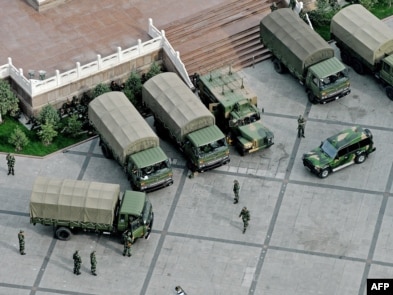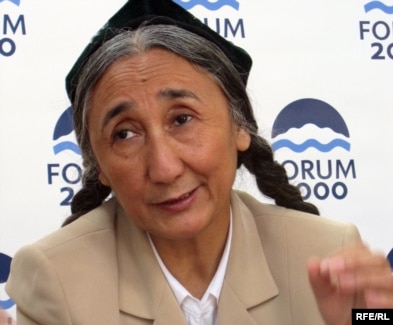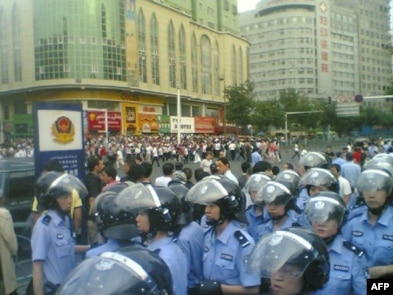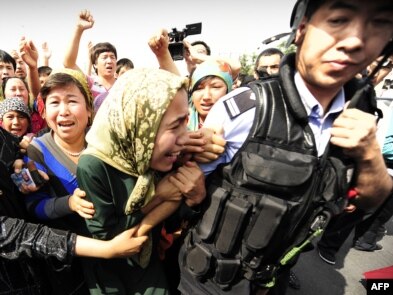2009-09-21 15:14:40
Full text: Development and Progress in Xinjiang
BEIJING, Sept. 21 (Xinhua) — The Chinese government Monday published a white paper on the development and progress in northwest China’s Xinjiang Uyghur Autonomous Region, stressing national unification, ethnic unity, social stability are the “lifeblood” for the region’s development and progress.
The paper, released by the State Council Information Office, reviewed the profound changes that have taken place in the past 60 years in Xinjiang, which accounts for about one sixth of the country’s land territory.
It also slammed the “East Turkistan” forces for seriously disrupting Xinjiang’s development and progress by trumpeting separatism and plotting and organizing a number of bloody incidents of terror and violence.
The 52-page document is divided into seven sections: Swift Economic Development; Remarkable Improvement in People’s Lives; Steady Development of Social Programs; Preservation of Ethnic Cultures; Upholding Ethnic Equality and Unity; Protecting Citizens’ Rights of Freedom of Religious Belief; and Safeguarding National Unity and Social Stability.
The great development and progress “should be attributed to the concerted efforts by all peoples of Xinjiang under the banner of solidarity of all ethnic groups, as well as to the success of China’s policies on ethnic minorities,” it said.
Since the first century B.C., Xinjiang, historically the passage for land transport and civilized contact between Asia and Europe, has been an important part of China, and played a significant role in the construction and development of a unitary multiethnic country, it said.
Prior to the founding ceremony of the People’s Republic of China on Oct. 1, 1949, Xinjiang witnessed its peaceful liberation. Peoples of Xinjiang, who had undergone great sufferings together with the people in other parts of the country, became the masters of the state, it said.
Since 1949, particularly after China’s reform and opening-up in the late 1970s, Xinjiang has entered an era of rapid economic and social progress, with the local residents enjoying the most tangible benefits, according to the paper.
The local GDP in 2008 stood at 420.3 billion yuan, which is 86.4 times higher than that of 1952, three years before the establishment of the Xinjiang Uyghur Autonomous Region, up 8.3 percent on average annually, it said.
In 2008, the per-capita net income of farmers in Xinjiang was 3,503 yuan, which is 28 times more than that of 1978, while the per-capita disposable income of urban residents reached 11,432 yuan, which is 35 times more than that of 1978, it said.
The great economic achievements are the results of concerted efforts by all peoples of Xinjiang, and of support from the central government and the entire nation.
From 1950 to 2008, the central government invested 386.23 billion yuan in Xinjiang, accounting for 25.7 percent of the total investment in the region, it said.
Huge progress was also made in areas including education, science, arts, health and medical services, employment, social security, as well as the preservation of ethnic cultures, according to the paper.
In Xinjiang, citizens of every ethnic group enjoy the rights prescribed by the Constitution and laws, including freedom of religious belief, and rights to vote and stand for election, it said.
According to the Constitution and laws, they also enjoy the rights to equally administer state affairs, to receive education, to use and develop their own spoken and written languages, and to preserve and advance the traditional culture of their own peoples, according to the paper.
The number of Xinjiang’s cadres from minority ethnic groups was46,000 in 1955. It shot up to 363,000 in 2008, accounting for 51.25 percent of the total number of cadres in Xinjiang, it said.
Most people of Xinjiang’s 10 major ethnic minority groups, with a total population of over 11.3 million, believe in Islam now, it said.
The number of Islamic mosques has soared from 2,000 in the early days of the reform and opening-up drive to 24,300 now, and the body of clergy from 3,000 to over 28,000, according to the paper.
“All these achievements would have been impossible for Xinjiang without national unification, social stability, or ethnic unity,” the paper said.
However, for years, the “East Turkistan” forces in and outside Xinjiang have been trumpeting national separatism, and plotted and organized a number of bloody incidents of terror and violence, seriously jeopardizing national unification, social stability and ethnic unity, thus seriously disrupting Xinjiang’s development and progress, it said.
“The ‘East Turkistan’ forces pose a severe threat to the development and stability of Xinjiang,” the paper said.
The “East Turkistan” forces have seriously violated the basic human rights to life and development of all the peoples of Xinjiang, seriously interrupted the region’s economic development, and pose a threat to regional security and stability, it said.
According to incomplete statistics, from 1990 to 2001, the “East Turkistan” forces both inside and outside China created more than 200 bloody incidents of terror and violence in Xinjiang, by means of explosions, assassinations, poisoning, arson, attacking, riots and assaults, it said.
As a result, 162 citizens, including people of various ethnicities, cadres at the grassroots level and religious personnel, lost their lives, and over 440 were wounded, according to the paper.
In 2002, they again organized several bloody incidents of terror and violence in Xinjiang. The most recent “July 5” riot in Urumqi caused huge losses in lives and property of the people of various ethnic groups, it said.
By July 17, 2009, 197 people died (most being innocent victims)and over 1,700 were injured, with 331 shops and 1,325 motor vehicles destroyed or burned, and many public facilities were damaged, figures from the paper showed.
“Ethnic unity is a blessing for all peoples, while separatism would be disastrous,” it said.
“It has become clearer for the people of all ethnic groups in Xinjiang that national unification, ethnic unity, social stability, plus the coexistence and development in harmony of all peoples who share weal and woe are the lifeblood for the region’s development and progress,” the paper said.
 Chinese troops deployed in Urumqi in September.
Chinese troops deployed in Urumqi in September.







